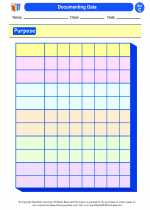Hydraulics: An Introduction
Hydraulics is a branch of science and engineering that deals with the mechanical properties of liquids, especially water or other fluids. It focuses on the behavior of fluids and the design of devices that utilize fluid power to perform work. Hydraulics is an important field that is used in various applications such as construction equipment, automotive systems, and industrial machinery.
Key Concepts in Hydraulics
- Fluid properties: Understanding the properties of fluids, such as density, viscosity, and pressure, is crucial in hydraulics.
- Pascal's law: This principle states that a change in pressure applied to an enclosed fluid is transmitted undiminished to all portions of the fluid and to the walls of its container.
- Hydraulic systems: These systems use fluid to transmit power. They typically consist of a reservoir, pump, valves, cylinders, and motors.
- Applications of hydraulics: Hydraulic principles are used in various applications including hydraulic brakes, hydraulic lifts, and hydraulic presses.
- Hydraulic symbols: Understanding the symbols used in hydraulic diagrams is important for designing and troubleshooting hydraulic systems.
Study Guide for Hydraulics
When studying hydraulics, it is important to grasp the fundamental principles and their applications. Here are some key topics to focus on:
- Learn about the properties of fluids and the behavior of liquids under pressure.
- Understand Pascal's law and its implications in hydraulic systems.
- Explore the components of hydraulic systems and their functions.
- Study real-world applications of hydraulics in various industries.
- Practice reading and interpreting hydraulic symbols and diagrams.
Remember to engage in hands-on activities and experiments to better understand the principles of hydraulics. Building simple hydraulic systems or conducting fluid pressure demonstrations can enhance your learning experience.
By mastering the concepts of hydraulics, you will gain a solid foundation in fluid mechanics and be equipped to understand and design a wide range of hydraulic systems and devices.
.◂Science Worksheets and Study Guides Third Grade. Science in our world - 3rd gr.
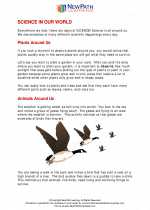
 Worksheet/Answer key
Worksheet/Answer key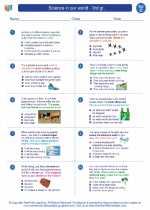
 Worksheet/Answer key
Worksheet/Answer key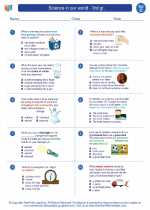
 Worksheet/Answer key
Worksheet/Answer key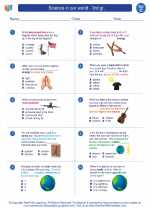
 Worksheet/Answer key
Worksheet/Answer key